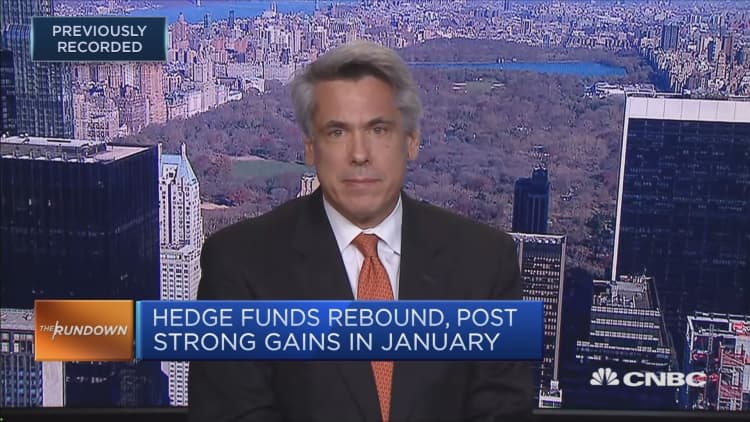
Hedge funds have received their fair share of criticism for their hefty fees, but there are still reasons to invest in them, according to an expert.
"There's 15,000 hedge funds out there and I think 90 percent of those hedge funds aren't worth the fees that people pay," said Donald Steinbrugge, chief executive and founder of Agecroft Partners, a consulting and marketing firm that focuses on hedge funds.
Warren Buffett, famously compared active managers to monkeys in his annual shareholder letter last year and took issue with what he perceived as exorbitant fees. In his latest annual letter released on Saturday, Buffett also discussed winning a 10-year bet against hedge funds. "Performance comes, performance goes. Fees never falter," he wrote.
Despite that, Steinbrugge said hedge funds were a good way to have a diversified portfolio, adding that the hefty fees mentioned in Buffett's letter last year were "coming down a lot."
"I do think there're 10 percent of the market that has very talented managers or has strategies that you can't get in a mutual fund. For example, reinsurance, a lot of CTA (commodity trading advisor) strategies, direct lending. I think all of those provide valuable diversification and can generate returns even after you've paid the hedge fund fees," he told CNBC's "The Rundown."
Still, Steinbrugge made the case that the pick-up in volatility earlier this month during the stock markets sell-off was good for hedge funds. Volatility is usually seen as a positive for active managers like hedge funds as stock price swings mean that equity managers can hit their targets more quickly.
"In a market correction, hedge funds that have market exposure are going to go down, but they should go down less than a long-only index," Steinbrugge said.
"I think there is a place for hedge funds. Should people invest all their money in hedge funds? Absolutely not. Is it part of a well-diversified portfolio? I think it is," he added.
Data from eVestment showed that a total of $14.12 billion was allocated into hedge funds last month, making it the strongest start to the year since pre-financial crisis times. Those figures also contrasted with the $111.64 billion in flows withdrawn from funds in 2016 and was the first time since 2014 inflows were recorded in January.
— CNBC's Leslie Picker contributed to this report.

